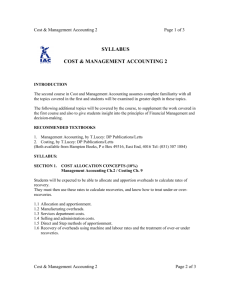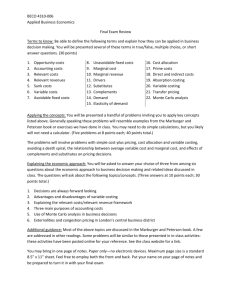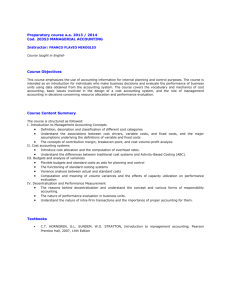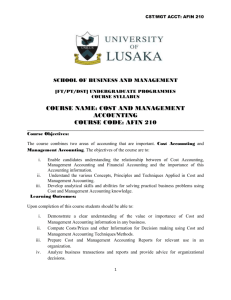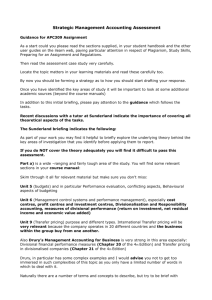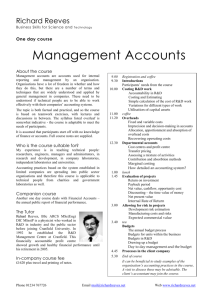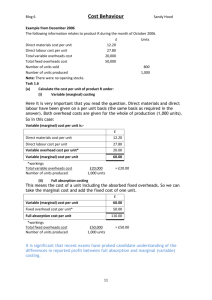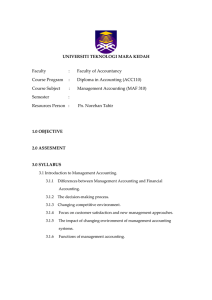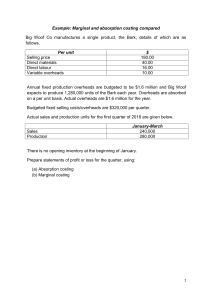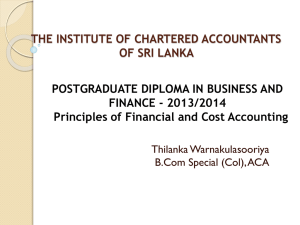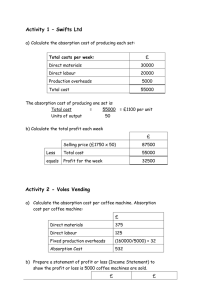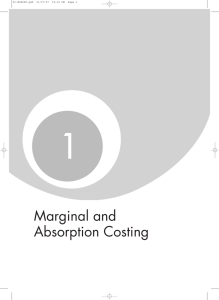PAPER NO. 10 FUNDAMENTALS OF MANAGEMENT
advertisement
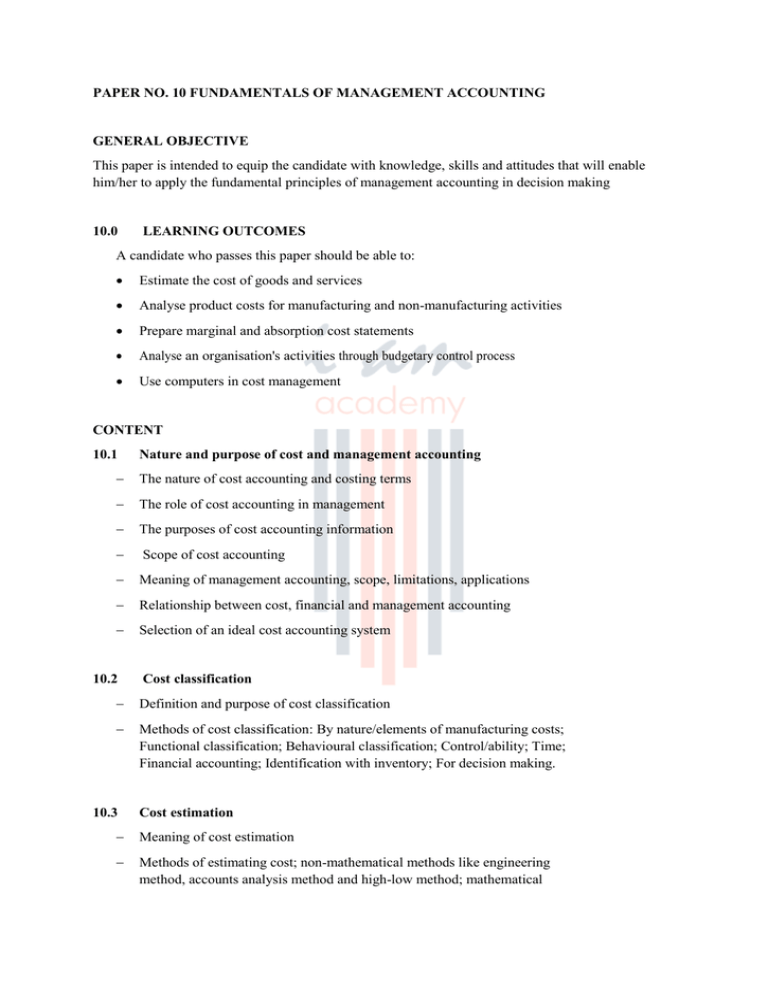
PAPER NO. 10 FUNDAMENTALS OF MANAGEMENT ACCOUNTING GENERAL OBJECTIVE This paper is intended to equip the candidate with knowledge, skills and attitudes that will enable him/her to apply the fundamental principles of management accounting in decision making 10.0 LEARNING OUTCOMES A candidate who passes this paper should be able to: Estimate the cost of goods and services Analyse product costs for manufacturing and non-manufacturing activities Prepare marginal and absorption cost statements Analyse an organisation's activities through budgetary control process Use computers in cost management CONTENT 10.1 Nature and purpose of cost and management accounting The nature of cost accounting and costing terms The role of cost accounting in management The purposes of cost accounting information Scope of cost accounting Meaning of management accounting, scope, limitations, applications Relationship between cost, financial and management accounting Selection of an ideal cost accounting system 10.2 Cost classification Definition and purpose of cost classification Methods of cost classification: By nature/elements of manufacturing costs; Functional classification; Behavioural classification; Control/ability; Time; Financial accounting; Identification with inventory; For decision making. 10.3 Cost estimation Meaning of cost estimation Methods of estimating cost; non-mathematical methods like engineering method, accounts analysis method and high-low method; mathematical methods like scatter graph method, OLS regression method (simple linear regression only) 10.4 Cost accumulation Accounting for materials and inventory; material cost records, purchasing procedures, receipt and issues of material, methods of valuing material issues, stock control procedures Accounting for labour: methods of labour remuneration, labour control procedures, maintenance of labour records Accounting for overheads: types of overheads, manufacturing, distribution and administration, departmental cost allocation and apportionment, overheads analysis, overhead absorption rates, over or under absorption 10.5 Cost bookkeeping The flow of costs in a business enterprise Cost bookkeeping- interlocking and integrated ledger systems 10.6 Costing methods Job order costing Batch costing Process costing (excluding work in progress, joint and by-products) Service costing Unit costing 10.7 Marginal and absorption costing Distinction between marginal and absorption costing, valuation of products under marginal and absorption costing Preparation of marginal and absorption statements; cost of production and profit determination Reconciliation of marginal profits and absorption profits, application of marginal costing: break-even analysis and charts (single product), simplified decision problems; accept or reject, special order, dropping a product, make or buy and choice of a product where a limiting factor exists 10.8 Budgeting and budgetary control Nature and purposes of budgets Preparation of budgets; master budgets, functional (department budgets, cash budgets), proforma financial reports (income statements and balance sheets) Purpose of budgetary control; Operation of a budgetary control system, organisation and coordination of the budgeting function 10.9 Emerging issues and trend
